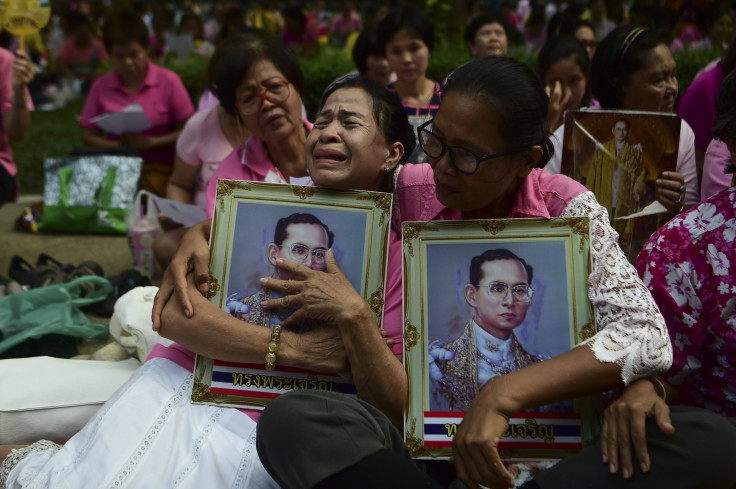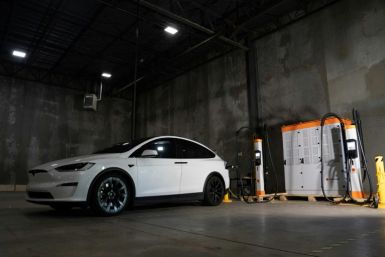What Will Happen In Thailand? King Bhumibol Death Sets Stage For Economic Instability

Following the death of the popular Thai King Bhumibol Adulyadej Thursday, the value of Thailand’s baht dropped from a high of 35.8617 per dollar that morning to a low of 35.3323 that afternoon, an early signal of possible economic turmoil for the South Asian country.
The sense of uncertainty cleared somewhat after prime minister and chief of the military junta Prayuth Cah-Ocha announced that Crown Prince Maha Vajiralongkorn would succeed Bhumibol—but to a limited extent. Junta soldiers increased patrols throughout the country amid worries that the widely disliked Vajiralongkorn’s succession could lead to political instability.
Maha, the son of the late Bhumibol, has made a name for himself as a flamboyant playboy who once made his pet poodle the country’s chief air marshal. He has been divorced three times and forced his own children into exile.
This wouldn’t mark the first time the country has dealt with political uncertainty. The ruling military junta deposed previous prime ministers Thaksin Shinawatra and his sister Yingluck Shinawatra in 2006 and 2014, respectively.
After the most recent junta takeover, in which Prayuth assumed power, Thailand’s GDP growth rate dipped to 0.8 percent from 2.7 percent the year before, according to the World Bank. The country’s growth rate returned to 2.8 in 2015.
Tourism, which makes up 10 percent of the nation's economy, is particularly vulnerable to a chaotic political climate. In 2014, visitors decreased by up to 7 percent. The coup also slowed activity in exports—which make up 67.6 percent of its GDP—of electronics, agricultural commodities, processed foods and cars.
Still, Prayuth sternly defended his country’s economic prospects in his statement on the death of its monarch.
"The stock market, investments, other businesses should not stop,” the prime minister said, according to the Associated Press. “Do not try to let the country lose its credibility, especially in the case of impact on the stock exchange."
© Copyright IBTimes 2024. All rights reserved.












